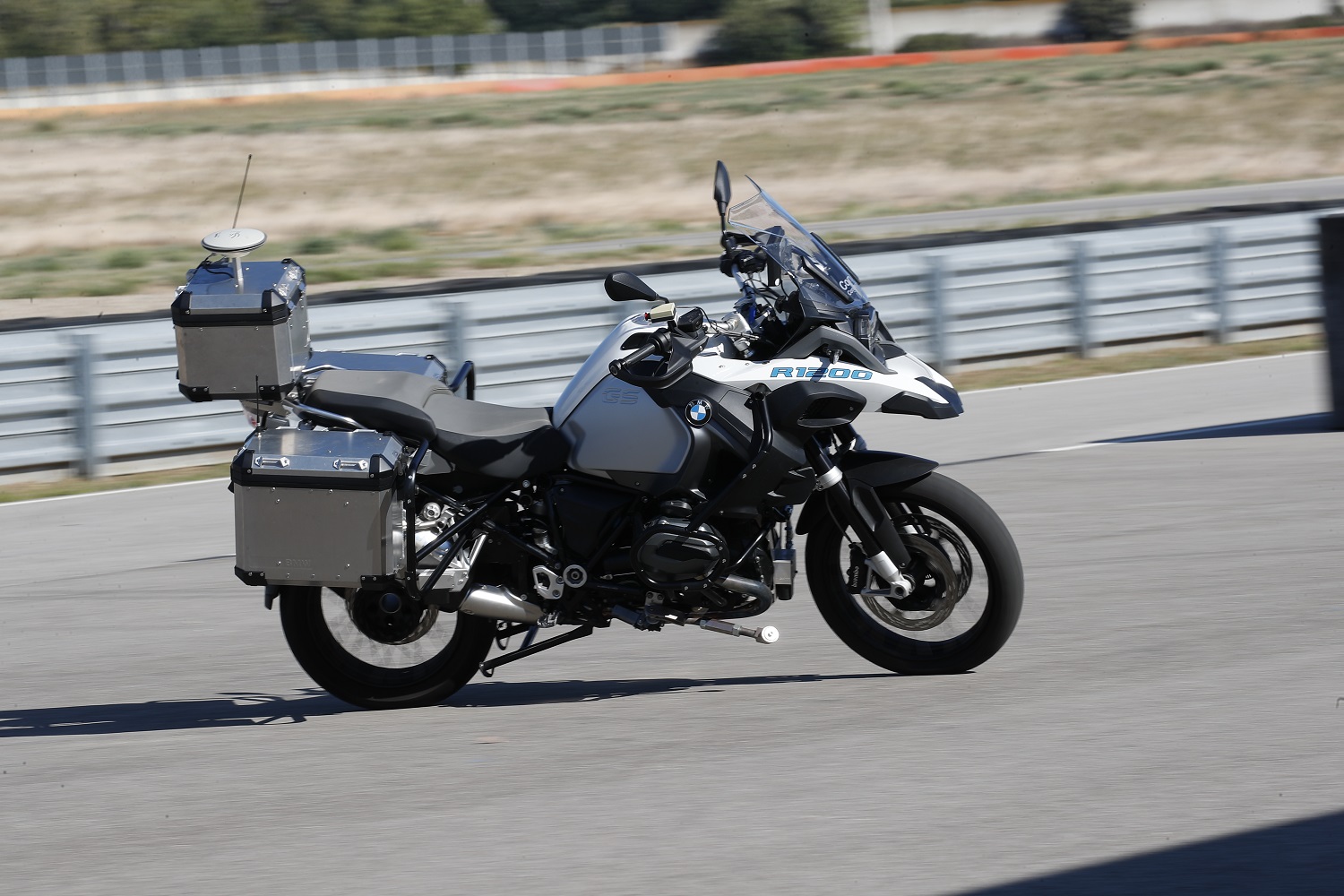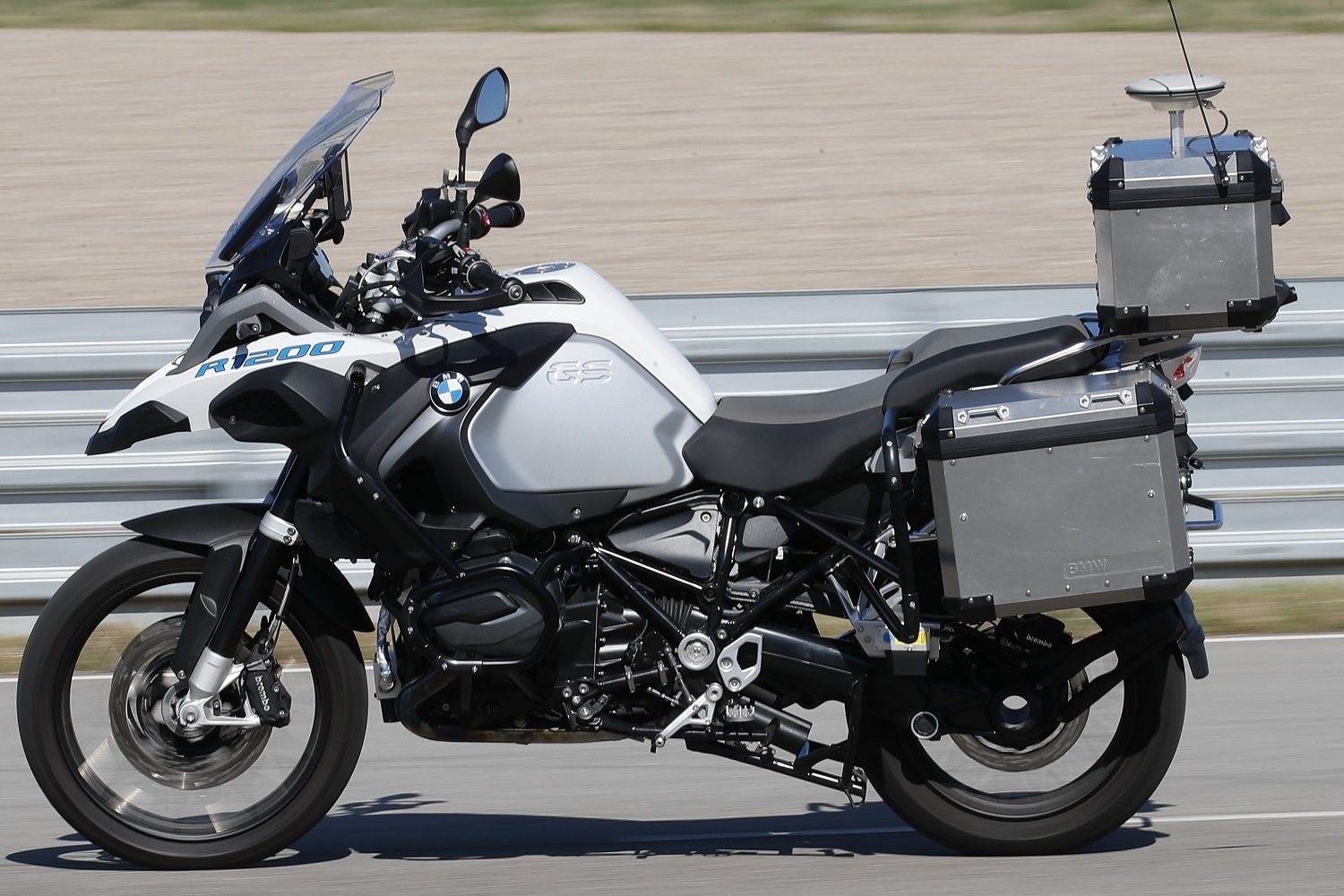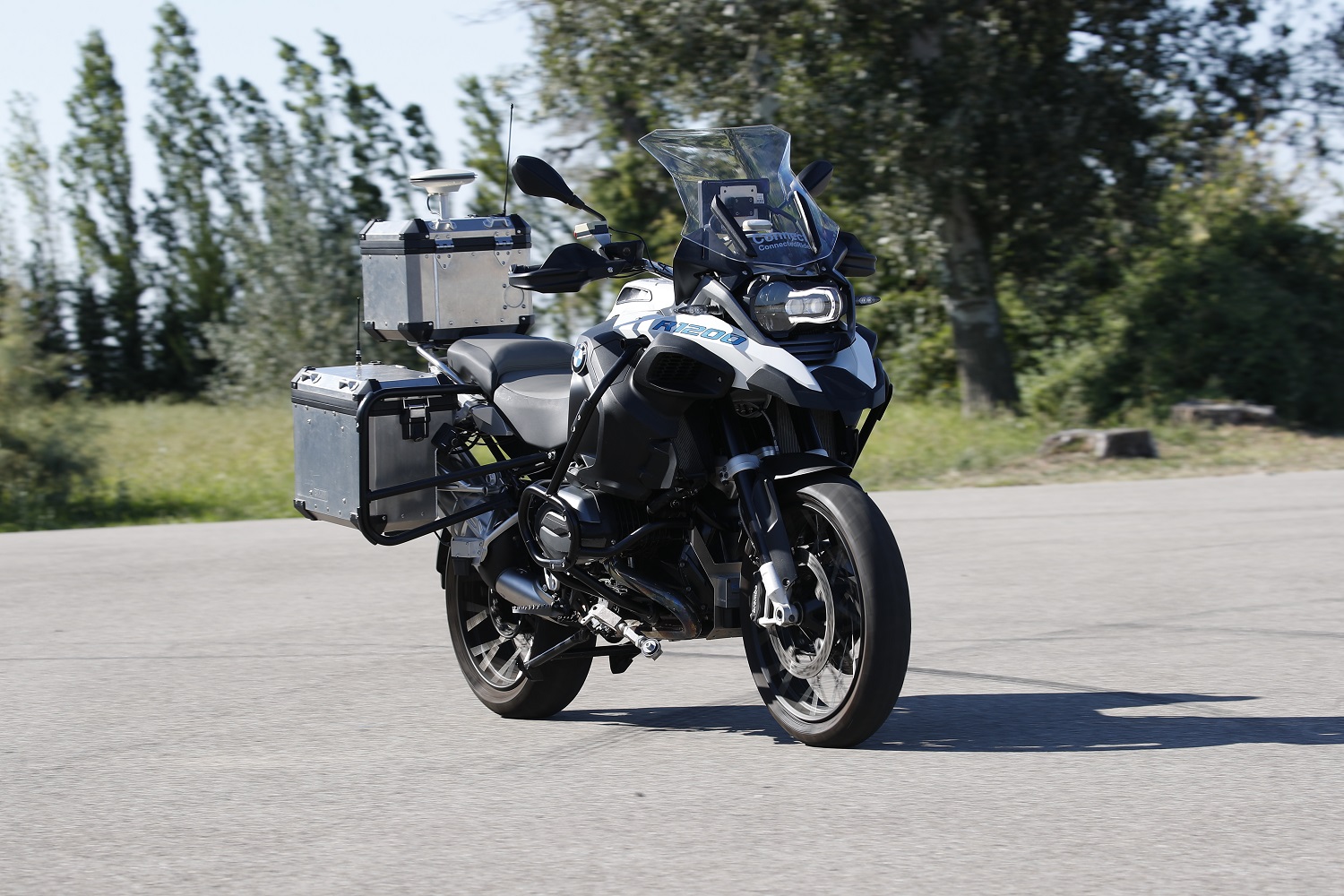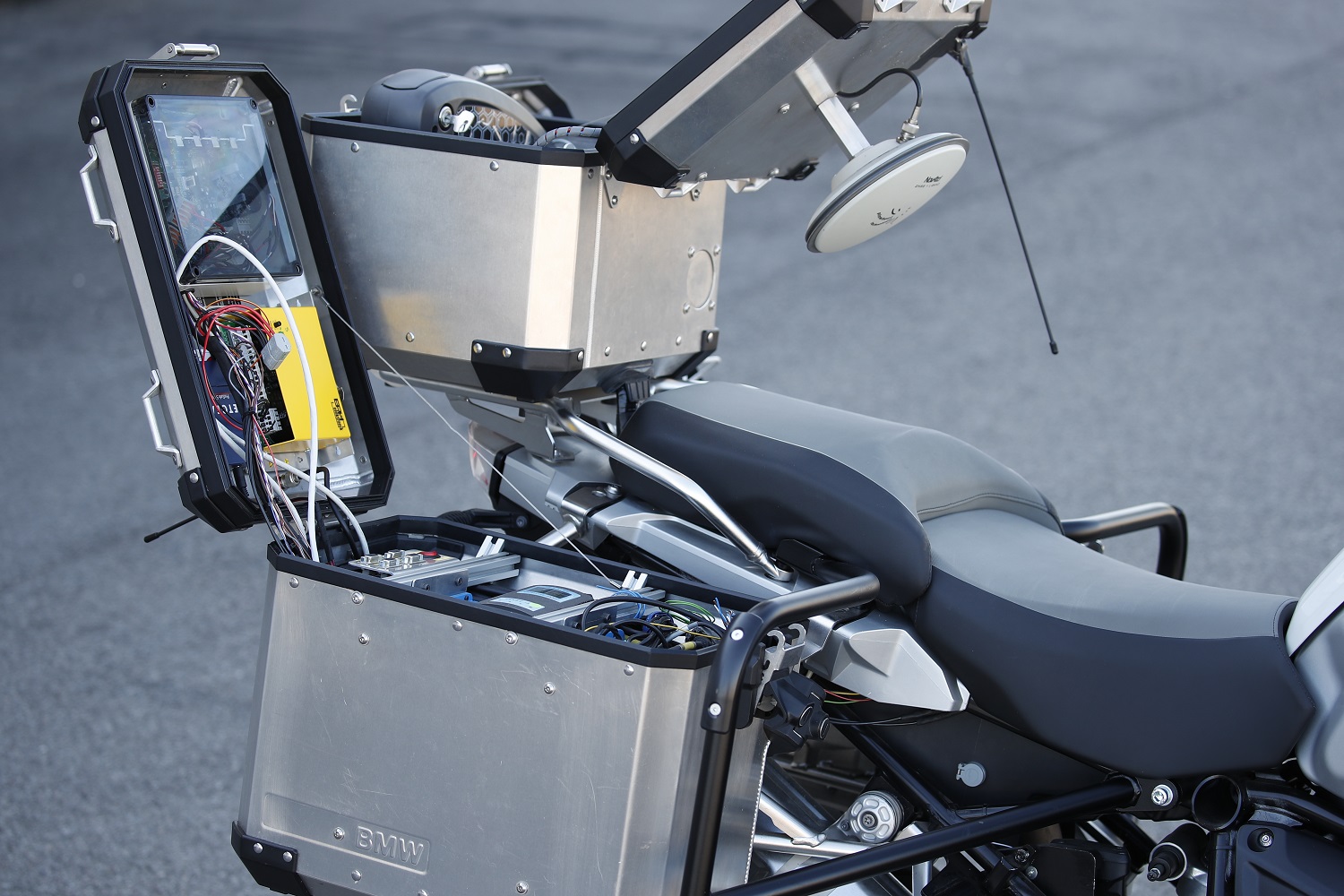BMW’s motorcycle-building division has developed a self-riding prototype that accelerates, turns, brakes, and stays balanced on its own without requiring a human rider. This technology is becoming increasingly common in the automotive industry but it remains rare in the motorcycle world. The German firm has no desire to deploy ghost bikes anytime soon, though.
“At first look, the self-riding motorbike seems to make no real sense,” BMW admitted. We agree; riding a motorcycle is all about driver engagement and enjoyment. So, why build one? The brand explained its researchers secretly worked on the project for two years in order to better understand vehicle dynamics and rider behavior. The knowledge they gained from the project will help future motorcycles determine when a situation is dangerous and inform, warn, or intervene as needed. This could one day lead to two-wheelers that are as technologically advanced as the four-wheelers they share the road with.
The prototype started life as a R 1200 GS. It looks nearly stock with the exception of an antenna installed on a storage case behind the seat. It scopes out the road ahead to analyze bends in the road and it brings the vehicle to a full stop when needed. BMW hasn’t detailed the suite of technology required for its prototype to ride on its own but everything fits in two additional cases mounted on either side of the seat. There’s no balancing trick involved, though. The bike simply rides with its kickstand extended and leans on it when it comes to a stop.
Some of the technology features demonstrated by BMW’s experimental self-riding motorcycle will likely trickle down to new models in the not-too-distant future. They could make riding a motorcycle safer by helping riders detect accidents before they happen and take preventive action. A motorcycle could, for example, tell when a texting driver is veering in front of it and brake, steer, or both simultaneously to avoid an impact. The firm stresses its goal is not to develop a fully automated motorcycle.
“We want to improve motorcycle safety. We can use that knowledge to develop further comfort and safety systems,” Stefan Hans, the project’s chief engineer, said in a statement. “Self-driving motorcycles on the road remain science fiction,” he added.





